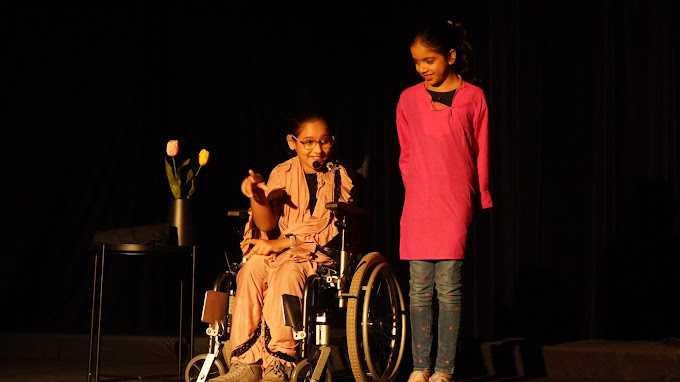The Magic Of Theatre: Inspiring Confidence And Creativity In Dramatics Class
Hello, dear readers! Today, I am thrilled to delve into the captivating realm of Dramatics Classes and shed light on their significance in honing the skills of aspiring actors. At “Spotlight On Skill” by Tamasha, curated by Deepika Rajani, where Talent Takes Center Stage, we are dedicated to fostering the talents and potential of every actor, one class at a time. In this article, I will guide you through the multifaceted world of acting classes, unveiling their various facets and aiding you in finding the perfect fit for your artistic journey.
Introduction:
Theatre has a transformative power that extends far beyond the stage. It has the ability to inspire confidence, ignite creativity, and foster personal growth in individuals of all ages. In the realm of dramatics classes, this magic comes to life as aspiring actors embark on a journey of self-discovery and artistic expression. In this article, we’ll explore how dramatics classes inspire confidence and creativity, shaping individuals into confident performers and creative thinkers.
The Power of Theatre
Theatre is a dynamic art form that allows individuals to step into different roles, explore diverse perspectives, and connect with audiences on an emotional level. Through storytelling, improvisation, and performance, theatre provides a platform for self-expression and personal growth. Here’s how dramatics classes harness the power of theatre to inspire confidence and creativity:
1. Building Self-Confidence:
- Dramatics classes create a supportive environment where individuals can explore and express themselves without fear of judgment.
- Through acting exercises, role-playing, and scene work, students learn to trust their instincts, take creative risks, and embrace vulnerability.
- As they inhabit different characters and perform in front of their peers, students develop a sense of self-assurance and belief in their abilities.
2. Enhancing Communication Skills:
- Theatre requires effective communication both on and off the stage. In dramatics classes, students learn to articulate their thoughts, emotions, and ideas with clarity and conviction.
- Through improvisational games, script readings, and ensemble activities, students hone their verbal and nonverbal communication skills, learning to listen attentively and respond authentically to others.
- These communication skills are invaluable not only in theatrical performances but also in everyday interactions and professional settings.
3. Cultivating Creativity:
- Theatre encourages imagination, innovation, and creative expression. In dramatics classes, students are encouraged to think outside the box, experiment with new ideas, and push the boundaries of their creativity.
- Through improvisation exercises, character development workshops, and collaborative projects, students unleash their creative potential and discover new ways of storytelling.
- By exploring different perspectives, emotions, and experiences, students expand their artistic horizons and develop a deeper understanding of themselves and the world around them.
The Role of the Instructor
In a dramatics class, the instructor plays a pivotal role in inspiring confidence and creativity in students. A skilled and experienced instructor creates a nurturing and supportive environment where students feel empowered to take risks, express themselves authentically, and explore their creative potential. Here’s how instructors can cultivate confidence and creativity in their students:
1. Encouraging Risk-Taking:
- A supportive instructor encourages students to step outside their comfort zones, take creative risks, and embrace failure as a natural part of the learning process.
- By providing constructive feedback and positive reinforcement, instructors help students build resilience and confidence in their abilities.
2. Fostering Collaboration:
- Theatre is inherently collaborative, requiring students to work together as a team to create compelling performances.
- Instructors foster a spirit of collaboration by encouraging students to listen to one another, support each other’s ideas, and collaborate on creative projects.
- Through ensemble work, group improvisations, and scene rehearsals, students learn the value of teamwork, cooperation, and mutual respect.
3. Providing Mentorship and Guidance:
- A mentorship role by the instructor allows students to receive personalized attention, guidance, and support tailored to their individual needs and goals.
- Instructors serve as role models and mentors, inspiring students to pursue their passions, overcome challenges, and strive for excellence in their artistic endeavors.
Conclusion:
In dramatics classes, the magic of theatre comes to life as students explore the depths of their creativity, develop confidence in their abilities, and forge meaningful connections with others. Through storytelling, improvisation, and performance, students embark on a transformative journey of self-discovery and artistic expression. With the guidance of skilled instructors and the support of their peers, students emerge from dramatics classes with a newfound sense of confidence, creativity, and self-assurance that extends far beyond the stage.
Stay tuned for more blogs on how drama can empower and transform our children’s lives!







































